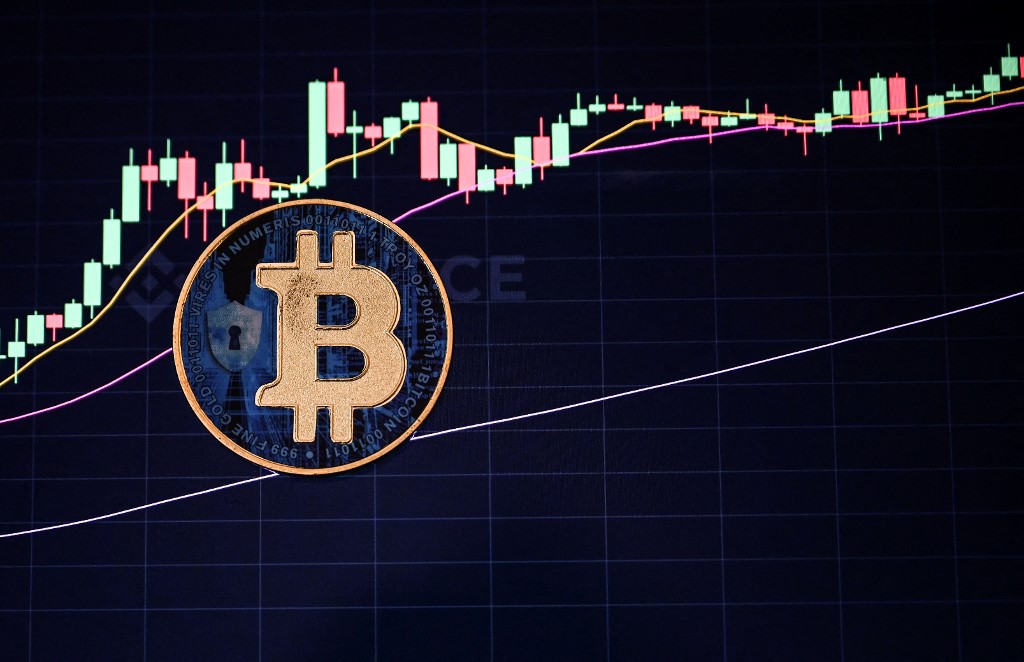I’ve become something of a crypto evangelist over the years. I wouldn’t consider myself an expert by any means, but I’ve been asked to write about Bitcoin since shortly after its launch in 2009. I’ve learned a thing or two along the way.
- Thing 1: Bitcoin is amazing.
- Thing 2: Bitcoin is highly volatile.
These are still early days for Bitcoin, so if things continue apace and this does indeed become the Currency of the Future, that volatility will smooth out over time. Then we’ll be able to focus on how great Bitcoin performs as a medium of exchange – once you figure out how to use it, as a buyer and/or seller.
In the meantime, we can take advantage of that volatility and make some speculative crypto investments. I’m going to recommend a very cautious approach here that’s designed for beginners, simple enough that even I can understand it. Let’s start at the beginning with Question No. 1.
Should I Invest in Cryptocurrency?
Only if you’ve got some money you can afford to lose.
I could say the same about any investment, but really, you’re probably not too worried about your T-bills or your index funds hitting rock bottom. It’s generally safer to invest larger portions of your bankroll in those sectors than more speculative plays like crypto.
Having said that, if you’re trying to optimize your portfolio, a healthy slice of that pie should be taken up by higher-risk investments. Cryptocurrency is a relatively new invention, not even 20 years old yet, so while it’s a promising technology with a strong use case, we have to treat crypto like the volatile commodity it is.
Don’t put too many eggs in that basket is what I’m saying.
Which Cryptocurrency Should I Invest In?
Bitcoin. Don’t mess around with any of the others, even Ethereum; Bitcoin (BTC) is the one digital coin that has put its stamp on the interwebs, the original decentralized cryptocurrency and by far the largest in terms of market capitalization at some US$1.9 trillion according to CoinMarketCap. That’s over four times the size of No. 2 Ethereum (ETH) at $439 billion.
All this makes Bitcoin as close to a safe investment as you’re going to get in the crypto space. Market cap is just the price of the coin multiplied by its circulating supply; Bitcoin’s massive cap is a product of its high price, driven in part by speculators, but also because so many people are actually using it to buy and sell stuff.
Ethereum has a viable use case as a “proof of stake” digital coin with applications for decentralized finance (DeFi), so if you’re dabbling in crypto, consider adding a sprinkle of ETH to your portfolio – but only a sprinkle. Stick largely with Bitcoin while you’re still learning the ropes, and even afterward.
Should I Buy Bitcoin?
As a means of exchange, certainly. As an investment? Maybe.
If you haven’t already, you could download a digital wallet to your smartphone, sign up for an account at a regulated crypto exchange, and purchase yourself some Bitcoin. Then you can watch the price go up and down.
And/or you could invest in some Bitcoin ETFs. Exchange-Traded Funds are investments that you can buy and sell on the open market just like mutual funds. With Bitcoin ETFs, instead of owning the crypto itself, you own a share of the fund that owns it. This makes it easier to buy and sell, and potentially cheaper when it comes time to pay both fees and taxes.
Bitcoin and Ethereum have both been approved for ETF trading in the United States and elsewhere, so if you’re feeling crypto-curious, give them a look – and keep checking back with Bookmakers Review for more helpful crypto tips and analysis.













